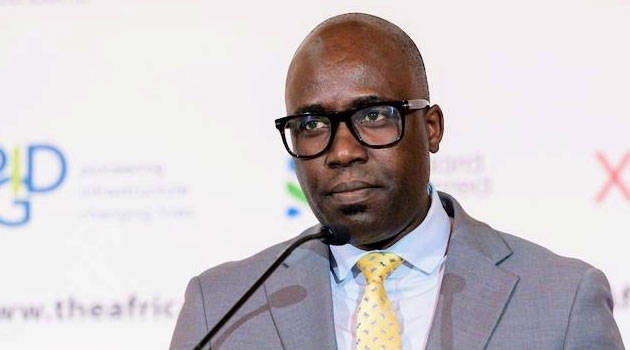The Ministry of Foreign and Diaspora Affairs has issued a stern rebuke to the Somaliland Liaison Office, halting its planned inauguration in Nairobi scheduled for Tuesday, May 27, 2025. In a formal diplomatic note, the Kenyan government clarified that the event lacks official approval and does not carry the status of a diplomatic office, reaffirming its unwavering recognition of the Federal Republic of Somalia as a sovereign state. The move comes amid heightened tensions and a delicate balancing act in Kenya’s foreign policy, as it navigates relations with Somaliland and Somalia.
The Controversy: Somaliland’s Planned Office Opening
The Somaliland Liaison Office in Nairobi announced plans to inaugurate its operations on May 27, 2025, coinciding with the arrival of Somaliland’s President Abdirahman Mohamed Abdillahi (Irro) in Nairobi. The event was intended to elevate the office’s status, with speculation that it aimed to secure formal diplomatic recognition. However, the Ministry of Foreign and Diaspora Affairs swiftly intervened, issuing a note verbale (MFA.REL/215 VOL 2 (87)) on May 26, 2025, stating that the event “has not been granted approval” and “cannot be allowed to proceed” as a diplomatic office. The ministry emphasized that the office’s investiture as a diplomatic entity “does not enjoy the imprimatur of the Republic of Kenya.”
The announcement sparked a flurry of reactions on X, with users like @Maydhalaalis calling it a “diplomatic setback” for Somaliland, while @siigaale1 praised Kenya’s reaffirmation of Somalia’s sovereignty, stating, “Jubbaland and Somaliland are regional parts of Somalia, not independent states.” The controversy highlights the complex dynamics between Kenya, Somaliland, and Somalia, as Nairobi seeks to balance regional engagement with its commitment to Mogadishu.
Kenya’s Stance: Somalia’s Sovereignty First
Kenya’s Ministry of Foreign and Diaspora Affairs, headquartered at the Old Treasury Building on Harambee Avenue, Nairobi, made its position clear: the Federal Republic of Somalia is the sole sovereign state, and Somaliland remains a regional entity within it. The ministry’s statement reiterated Kenya’s adherence to the African Union’s (AU) stance, which requires Somalia’s consent for Somaliland’s recognition. This aligns with Kenya’s foreign policy, guided by the Kenya Constitution 2010 and the Foreign Service Act 2021, which prioritizes peaceful coexistence, non-interference, and respect for territorial integrity.
The ministry acknowledged its “appreciation” for relations with Somaliland and other regional administrations, noting that such ties aim to enhance peace, security, trade, and investment in the Horn of Africa. However, it stressed that these engagements occur through dialogue with Mogadishu, underscoring Kenya’s commitment to Somalia’s state-building efforts. This diplomatic tightrope was evident when Somaliland’s President Irro arrived in Nairobi on May 26, 2025, welcomed by Cabinet Secretary for Mining, Blue Economy, and Maritime Affairs Hassan Joho, but without official endorsement for the liaison office event.
A History of Tensions: Kenya, Somaliland, and Somalia
The Somaliland Liaison Office in Nairobi has operated since at least 2019, alongside Kenya’s liaison office in Hargeisa, established in 2021 with four officers, including Head Benson Mwaliko. These offices facilitate trade, security, and cultural ties, with an estimated 10,000 Kenyans living and working in Somaliland. In 2020, Presidents Uhuru Kenyatta and Muse Bihi Abdi signed agreements to boost bilateral trade, introduce Kenya Airways flights to Hargeisa, and cooperate in agriculture, education, and energy.
However, these engagements have repeatedly strained Kenya-Somalia relations. Somalia views Somaliland as part of its territory and has accused Kenya of undermining its sovereignty. A 2021 diplomatic row erupted when Kenya appointed a head to its Hargeisa office, prompting Mogadishu’s protests. More recently, in 2023, Kenya clarified that its Hargeisa consulate and Somaliland’s Nairobi office are not diplomatic missions, after confusion over the appointment of Abdi Weli Muhamad Hussein as Consul-General to Hargeisa. The May 27, 2025, event reignited these tensions, with Somalia likely viewing it as an attempt to elevate Somaliland’s status.
Why Kenya Halted the Event
The Ministry of Foreign and Diaspora Affairs cited several reasons for blocking the Somaliland Liaison Office’s inauguration:
- Lack of Approval: The event was not authorized by the ministry, violating diplomatic protocols.
- Somalia’s Sovereignty: Kenya’s policy aligns with the AU and international community, recognizing only Somalia as a sovereign state.
- Diplomatic Status: The liaison office’s attempt to claim diplomatic status was deemed unacceptable, as it lacks formal recognition.
- Regional Stability: Kenya aims to avoid antagonizing Mogadishu, which could destabilize Horn of Africa relations.
The ministry’s swift response, issued hours before President Irro’s arrival, suggests a calculated move to prevent a diplomatic crisis while maintaining ties with Somaliland for trade and security purposes.
Public and Regional Reactions
The decision triggered mixed reactions on X and in regional media:
- Pro-Somalia Sentiment: Users like @TheDailySomalia and @YassSomali hailed Kenya’s stance, with the latter noting, “Kenya’s second statement clarifies Somaliland’s event lacks approval and diplomatic status.”
- Somaliland Supporters: @thebhlub criticized Kenya’s “hostile” approach, arguing it was “unduly harsh” to publicly chastise Somaliland to appease Mogadishu.
- Neutral Observers: @Eastleighvoice described Kenya as “threading a delicate diplomatic needle,” balancing Somalia’s sovereignty with Somaliland engagement.
Regional media, such as APAnews, warned that Kenya’s stance could further isolate Somaliland diplomatically, despite its relative stability compared to Somalia. Somaliland’s push for recognition, supported only by Taiwan globally, remains a contentious issue, with the AU insisting on Somalia’s approval first.
Implications for Kenya’s Foreign Policy
The halted inauguration has several implications for Kenya’s foreign relations and regional role:
- Balancing Act: Kenya’s decision reinforces its commitment to Somalia while maintaining informal ties with Somaliland for trade and security. This aligns with its broader goal of promoting peace and investment in the Horn of Africa.
- Diplomatic Tensions: The move risks straining relations with Somaliland, which has invested in its Nairobi office and sees Kenya as a key partner. President Irro’s visit, though low-key, indicates continued engagement.
- Regional Influence: Kenya’s firm stance may influence other East African nations, like Ethiopia and Djibouti, which also maintain consulates in Hargeisa, to avoid recognizing Somaliland.
- Trade and Investment: The Somaliland Liaison Office has facilitated events like the 2019 Somaliland-Kenya Investment Forum, promoting infrastructure, energy, and trade. Blocking its elevation could slow these initiatives, though Kenya insists it supports such cooperation through Mogadishu.
Challenges in Kenya’s Diplomacy
Kenya faces several challenges in navigating this issue:
- Somalia’s Fragility: Mogadishu’s weak governance and ongoing conflicts, such as with Al-Shabaab, make it sensitive to perceived slights, complicating Kenya’s engagement with Somaliland.
- Somaliland’s Aspirations: Somaliland’s stability, democratic elections, and economic potential make it an attractive partner, but Kenya cannot risk alienating Somalia.
- Public Perception: Kenya’s public rejection of the event, as criticized on X, may be seen as heavy-handed, potentially harming its image as a neutral regional mediator.
- Regulatory Clarity: The ministry’s repeated clarifications (e.g., in 2023 and 2025) suggest ongoing confusion over Somaliland’s status, requiring consistent communication.
What Kenyans and Stakeholders Can Do
To address the fallout and promote constructive dialogue, stakeholders can take these steps:
For Kenyan Citizens
- Stay Informed: Follow updates from the Ministry of Foreign and Diaspora Affairs (www.mfa.go.ke) to understand Kenya’s position on Somaliland and Somalia.
- Report Concerns: Contact the ministry at info@mfa.go.ke or +254 20 3318888 if you encounter misleading claims about diplomatic events.
- Engage Responsibly: Avoid spreading unverified information on platforms like X, which can fuel tensions.
For Somaliland and Somalia
- Dialogue with Kenya: Engage in sustained talks through Mogadishu to clarify the status of liaison offices and avoid public disputes.
- Transparency: Somaliland should clearly communicate the purpose of its Nairobi office to align with Kenya’s non-diplomatic framework.
For the Ministry of Foreign Affairs
- Clear Communication: Issue regular updates to prevent confusion, as seen in past gaffes (e.g., 2023’s consul-general controversy).
- Strengthen Regional Ties: Support Somalia’s state-building while fostering trade with Somaliland through approved channels.
- Public Diplomacy: Address criticisms on platforms like X to maintain Kenya’s image as a fair regional player.
How to Contact the Ministry
For inquiries or to report concerns about diplomatic events, reach out to the Ministry of Foreign and Diaspora Affairs:
- Address: Old Treasury Building, Harambee Avenue, P.O. Box 30551-00100, Nairobi, Kenya
- Phone: +254 20 3318888
- Fax: +254 20 341935/240066
- Email: info@mfa.go.ke
- Website: www.mfa.go.ke
The Bigger Picture: Kenya’s Role in the Horn of Africa
Kenya’s rejection of the Somaliland Liaison Office’s inauguration reflects its delicate role as a regional powerhouse. With 66 diplomatic missions, 4 consulates-general, and 31 honorary consuls globally, Kenya is a key player in the African Union and Inter-Governmental Authority on Development (IGAD). Its foreign policy, led by Prime Cabinet Secretary Musalia Mudavadi and Principal Secretaries Dr. A. Korir Sing’Oei and Roseline K. Njogu, emphasizes peace, security, and economic cooperation. By halting the Somaliland event, Kenya avoids antagonizing Somalia while signaling openness to trade with Somaliland, as seen in past initiatives like the 2019 Investment Forum.
However, the incident underscores the need for clearer policies to avoid future diplomatic missteps. Kenya’s support for Somalia’s sovereignty, combined with its practical engagement with Somaliland, positions it as a mediator in the Horn of Africa’s complex dynamics.
The Ministry of Foreign and Diaspora Affairs’ decisive action to block the Somaliland Liaison Office’s inauguration on May 27, 2025, sends a clear message: Kenya prioritizes Somalia’s sovereignty while maintaining pragmatic ties with Somaliland. The move averts a potential diplomatic crisis but highlights ongoing challenges in balancing regional interests. As Kenya navigates this standoff, clear communication, robust diplomacy, and public engagement will be key to sustaining its role as a regional leader.





